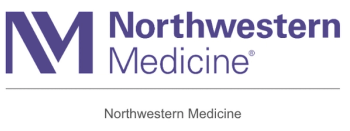
Novel testosterone undecanoate capsule launched in US hypogonadism market
Testosterone undecanoate (Tlando), an oral testosterone replacement therapy, was approved in March 2022 for the treatment of men with hypogonadism.
Testosterone undecanoate (Tlando), an oral testosterone replacement therapy for the treatment of men with hypogonadism, has officially launched in the US market.1
The FDA approved testosterone undecanoate capsules in March 20222 for the treatment of patients with either a) primary hypogonadism (congenital or acquired), defined as testicular failure due to conditions such as cryptorchidism, bilateral torsion, orchitis, vanishing testis syndrome, orchiectomy, Klinefelter's syndrome, chemotherapy, or toxic damage from alcohol or heavy metals, or b) hypogonadotropic hypogonadism (congenital or acquired), defined as gonadotropin or luteinizing hormone-releasing hormone deficiency or pituitary-hypothalamic injury from tumors, trauma, or radiation.
"We are delighted to announce the commercial availability of TLANDO and provide patients with a convenient oral dosing option for testosterone replacement therapy. The launch of Tlando represents our second testosterone replacement therapy product, following the 2018 launch of Xyosted, a weekly subcutaneous auto-injector,” Helen Torley, MBChB, MRCP, president and chief executive officer of Halozyme, the developer of testosterone undecanoate, stated in a news release.
The pivotal trial supporting approval of the oral testosterone undecanoate was Study 16-002,3 which included 95 hypogonadal males. All patients received testosterone undecanoate at 225 mg twice daily for approximately 24 days. Patients treatment doses were not titrated. The median patient age was 56 years (range 29-74), 70% were obese (BMI ≥ 30 kg/m2), 50% had a history of hypertension, and 23% had a history of type 2 diabetes. Overall, 81% of patients were White, 16% were Black, 2% were mixed race, and 1% were Asian.
The primary study end point was the percentage of patients who, on the final visit of the study, reached a 24-hour average serum testosterone concentration (Cavg0-24h) within the normal range (300-1080 ng/dL). This end point was reached with 80% (95% CI, 72-88) of patients achieving this benchmark.
Secondary end points for the study were the percentage of patients with maximum total testosterone concentration (Cmax) meeting 3 limits predetermined by the study design: less than or equal to 1.5 times the upper limit of the normal range (ULN; 1620 ng/dL), between 1.8 and 2.5 times ULN (1944 - 2700 ng/dL), and greater than 2.5 times ULN (2700 ng/dL). The results showed that the percentage of patients meeting these 3 limits were 82%, 5%, and 0%, respectively.
Regarding safety, adverse reactions occurring in >2% of patients were blood prolactin increase (6.3%), weight increase (2.1%), headache (2.1%), and musculoskeletal pain (2.1%). There was only 1 patient who had an adverse reaction (gastric ulcer hemorrhage) that resulted in study discontinuation.
The FDA label includes 3 contraindications for oral testosterone undecanoate in male patients: known or suspected prostate cancer, hypersensitivity to this treatment or any of its ingredients, or hypogonadalconditions not associated with structural or genetic etiologies.
References
1. Halozyme Announces Commercial Launch of TLANDO™, an Oral Treatment for Testosterone Replacement Therapy. Published online June 7, 2022. Accessed June 9, 2022. https://prn.to/3NBiS5a
2. Antares Pharma Announces FDA Approval Of TLANDO™, an Oral Treatment for Testosterone Replacement Therapy.
3. FDA Label TLANDO (testosterone undecanoate) capsules. Accessed March. https://bit.ly/3wNbeiw
Newsletter
Stay current with the latest urology news and practice-changing insights — sign up now for the essential updates every urologist needs.






